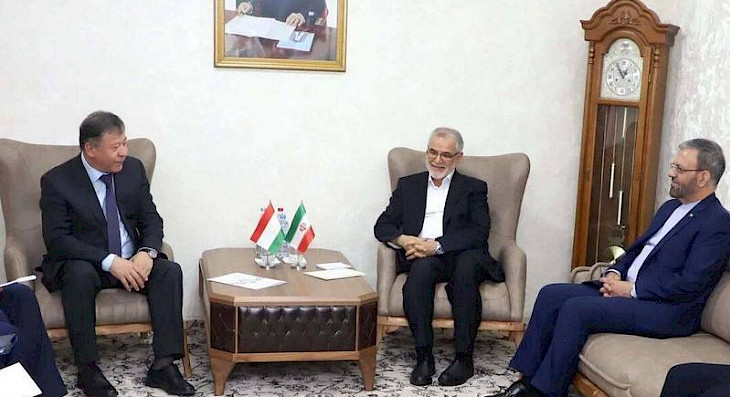Deputy Interior Minister of Iran for Security Affairs, Aliakbar Pourjamshidian, has arrived in Dushanbe on a working visit to participate in the third meeting of the Iran-Tajikistan Joint Working Group on Security, reports Eurasiatoday.ru.
He was personally welcomed at the airport by Tajikistan’s First Deputy Interior Minister, Abdurahmon Alamshozoda - a gesture that underscores the high level of trust between the two countries in security cooperation and counterterrorism efforts, according to KARAVAN Info.
Agenda: From Counter-Narcotics to Anti-Extremism Cooperation
During his visit, Pourjamshidian is expected to hold talks with the Minister of Internal Affairs of Tajikistan and heads of other security agencies. Key topics include combating the illegal drug trade, counterterrorism coordination, maintaining public order, and improving intelligence sharing.
These discussions take on heightened importance amid the deteriorating security situation in Afghanistan and the growing activity of radical groups in border areas.
According to the UN Office on Drugs and Crime (UNODC), over 20% of the heroin trafficked from Afghanistan passes through Tajikistan. Meanwhile, Iran intercepts significant volumes of narcotics at its eastern border on a daily basis.
Joint Working Group: A Strategic Coordination Platform
Established in 2022, the Joint Working Group on Security has quickly evolved into a vital mechanism for coordinating law enforcement cooperation between Iran and Tajikistan. The format includes regular in-person and virtual consultations, staff training, joint operations, and the development of legal frameworks to address transnational threats.
The group also plays a key role in Iran’s "soft power" strategy as it seeks to build partnerships in Central Asia amid ongoing sanctions and Western pressure.
Iran Expands Regional Engagement
Tehran’s participation in such regional formats reflects its growing involvement in Central Asian affairs — particularly after joining the Shanghai Cooperation Organization (SCO) and BRICS in 2023.
Tajikistan, with its Persian cultural roots and strategic geographic location, is a cornerstone of Iran’s regional approach.
Security cooperation serves as a bridge between humanitarian initiatives and tangible influence in the region’s power structures.
Looking ahead, the joint working group may evolve into a multilateral format that includes Afghanistan, Uzbekistan, Kyrgyzstan, and other interested countries. This is particularly relevant as ISIS expands its presence in northern Afghanistan and transnational criminal networks gain strength across the region.
CentralasianLIGHT.org
May 22, 2025

